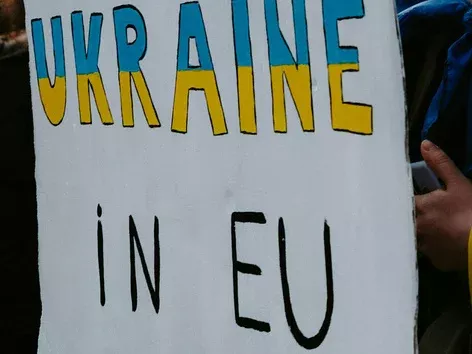
Several million Ukrainian refugees have been living in European countries since 2022, where they receive significant assistance and the opportunity to integrate. However, the main support programme for Ukrainians is currently designed to last until 2026. What to expect after that and what plans the EU has, read in this article
Since the outbreak of the full-scale war, European countries have become a second home for Ukrainian citizens fleeing russian aggression. Today, there are 4.5 million Ukrainians living in the EU who are covered by the Temporary Protection Directive. However, this status is temporary, and its term has been extended only until March 2026. What will happen to Ukrainian refugees after that, we will look into further.
According to the European Commissioner for Home Affairs, Ilva Johansson, in an interview with Radio Liberty, the number of Ukrainians in Europe is growing every week. Therefore, the EU is ready to accept Ukrainian refugees ‘as long as it takes,’ she said, answering the question of whether the status of temporary protection could be extended after 2026.
‘But it should also be said that the Temporary Protection Directive is temporary legislation. Therefore, we should consider other forms of residence permits,’ Johansson added.
What can the EU offer to Ukrainian refugees after 2026?
The European Commissioner said that Europe is discussing a permanent status option for Ukrainian refugees.
According to her, Europe should offer a way out for two categories of citizens: the first is Ukrainians who would like to stay in the EU and have a stable residence permit; the second is Ukrainians who are ready to return home and the EU should support these people.
Johansson noted that the EU countries are very active in this discussion in order to reach a common European solution. They are also discussing the issue of making the period of residence under temporary protection count when a person applies for permanent residence.
As we have already written, Ukrainian citizens make a significant contribution to the European economy. Moreover, Ukrainians bring more to the European budget than some countries spend on their support. For example, the Czech budget receipts from taxes and other contributions of Ukrainian refugees are almost twice as high as the costs of supporting them. In the first half of the year, revenues totalled 11.7 billion CZK (about €465 million). Therefore, some countries may not be interested in returning Ukrainians to their homeland.
Visit Ukraine on social media: Telegram | YouTube | Instagram | Facebook | Twitter | TikTok
How might the rules for Ukrainians in the EU change?
According to lawyers, tighter control over the legal status of Ukrainians in Europe is possible. EU countries are likely to introduce additional requirements, such as mandatory proof of employment or participation in integration programmes, as a condition for continued stay in the EU.
In addition, Ukrainians' access to the EU labour market may become more restricted due to economic difficulties in the bloc. Some countries may introduce quotas or restrictions on certain professions to avoid oversaturation of the market. However, highly skilled professionals are likely to remain a priority for many European countries.
It should be noted, however, that many member states have already started developing long-term programmes aimed at integrating refugees. Initiatives are almost certain to develop, but their availability may vary depending on the economic situation in particular countries.
We remind you! The recent statements by the Netherlands and Hungary about their desire to abandon the EU migration rules have sparked serious discussions in Europe. Both countries claim that they need to regain control over their migration policies. We explain what this means here.
If you are interested in the issue of migration and face any obstacles or difficulties, we recommend that you entrust this matter to professionals - Visit Ukraine lawyers will help you with the collection of documents and provide advice using an individual approach. You can get acquainted with the consultation packages here.
Want to know more? Read the latest news and useful materials about Ukraine and the world in the News section.
Ihor Usyk is the Head of Legal Department at Visit Ukraine
On the Visit Ukraine portal, you can get legal advice on migration law. Our lawyers will answer all your questions and, if necessary, help you collect, submit and receive the documents you need. You can order a specialist consultation or full legal support by following this link.
Our recommendation for a safe and comfortable trip:
Visit Ukraine Insurance - insurance for a safe stay abroad without unnecessary expenses;
Green Card - compulsory car insurance for traveling abroad;
Visit Ukraine Tickets - book tickets for buses, trains, and airplanes to/from Ukraine and between cities around the world;
Private Lawyer service - professional legal support on visa and migration issues;
Visit Ukraine Merch - buy patriotic clothing and accessories with worldwide delivery.
© 2018-2024, Visit Ukraine. Use, copying or reprinting of materials on this site is permitted only with a link (hyperlink for online publications) to Visit Ukraine.
All rights reserved.


